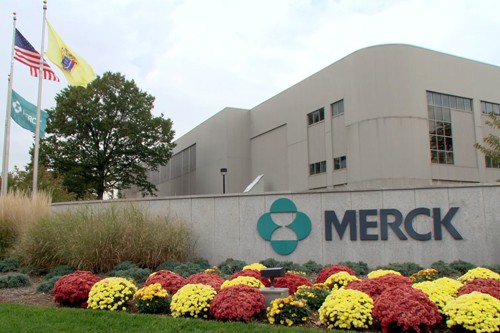
Merck & Co – known as MSD outside the US and Canada – has announced that Keytruda (pembrolizumab) has been recommended by the National Institute for Health and Care Excellence (NICE) for the treatment of breast cancer.
Specifically, NICE’s recommends Keytruda as an option with chemotherapy for neoadjuvant, and alone as adjuvant treatment after surgery for patients with early triple-negative or locally advanced breast cancer.
The decision marks the first time patients in England with triple-negative breast cancer (TNBC) will be able to access immunotherapy at an earlier stage in their treatment journey, reducing the risk of their cancer returning and resulting in more positive treatment outcomes.
The recommendation was based on positive results from the KEYNOTE-522 trial in 1,174 patients with newly diagnosed, previously untreated and non-metastatic TNBC.
The study showed that neoadjuvant Keytruda combined with chemotherapy followed by adjuvant Keytruda monotherapy led to a statistically significant and clinically meaningful improvement in event-free survival after a median follow-up of 39.1 months compared with neoadjuvant placebo combined with chemotherapy followed by adjuvant placebo monotherapy.
There was also a significantly higher proportion of patients with a pathological complete response in the Keytruda-chemotherapy group compared with placebo-chemotherapy.
In terms of safety, for patients treated with Keytruda-chemotherapy, rates of drug-related adverse events of grade 3 or higher in the combined neoadjuvant and adjuvant phases were 77.1% versus 73.3% for patients treated with placebo-chemotherapy.
TNBC is seen as an aggressive cancer with a high recurrence rate, which is greatest within the first three years following diagnosis, and has a low five-year survival rate compared to other cancer types.
In the UK, TNBC affects around 8,000 people each year in the UK, and compared to other types of breast cancer, is more commonly seen in women under 40 and more likely to be experienced by black people, and by people who have a specific genetic mutation – BRCA1.
David Long, head of oncology at MSD UK, said: “TNBC is an aggressive type of breast cancer that disproportionately impacts black people and those under 40. Previously, there was no immunotherapy treatment option available for people with early stage or locally advanced TNBC, creating an unmet need for these patients.
“I am delighted by NICE’s decision to make the first immunotherapy for early stage TNBC available. This decision will hopefully enable patients to have a more positive treatment outcome. MSD is proud to lead the way for this under-served patient population.”




